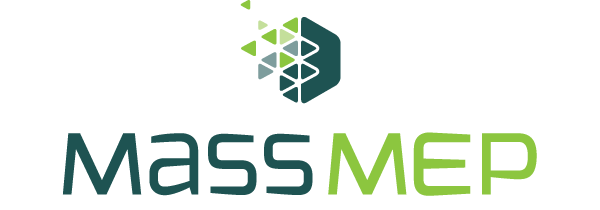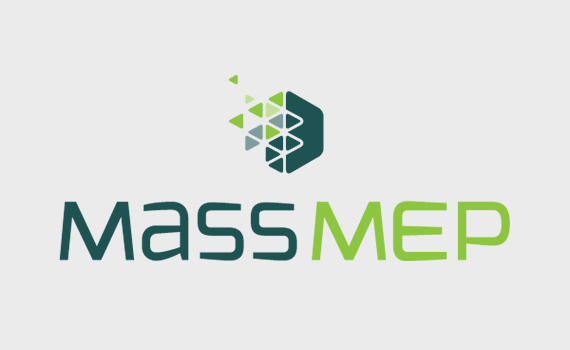English for Speakers of Other Languages (ESOL): Applications and Benefits in the Manufacturing Workplace
By Lisa Derby Oden
In today’s global community it is not unusual for a company to have employees who have limited English language skills. Manufacturers can increase worker safety, improve customer service and productivity, increase team effectiveness, create pathways for promotion to leadership roles, and increase employee retention by providing ESOL training. ESOL is one element of building an inclusive workplace. English for New Bostonians (ENB), headquartered in Boston, and the International Language Institute (ILI), located in Northampton, are two organizations that address this organizational workplace need.
English for New Bostonians creates opportunities for immigrants to learn English and pursue their educational, economic, and civic aspirations. ENB provides free or very low-cost instruction to more than 1,100 immigrants each year. They also conduct community and policy research and share it with English learning language programs, policymakers, funders, and employers. As an example, in one recent study of restaurants and other businesses providing ESOL classes, 100% of employers saw improvements in employee communication, and ease in the workplace, and 76% saw improvements in workplace safety. In Massachusetts, companies have seen a 49% increase in production accuracy and a 75% decrease in customer complaints.
The International Language Institute serves about 800 students a year and is 36 years old. They see language instruction as a central means of building greater cultural understanding and appreciation in an era of ever-growing global interaction. ILI’s philosophy is to get students up and running with a spoken language as quickly as possible. Some of the clients for their English in the Workplace training
include Baystate Health, ISO New England, Shop Rite in Chicopee, Hatfield’s C&S Grocers, Holyoke’s Ampad and Specialty Loose Leaf, the Holyoke Public School Systems, Hampden Papers and many more.
Caroline Gear, ILI’s Executive Director, and Franklin Peralta, English Works Campaign Organizer for ENB discuss what the mutual benefits are of working together with MassMEP. Caroline begins, “Because of MassMEP, ILI met ENB. Our organizations have similar missions, providing access to education for everyone. Our partnership with ENB and MassMEP allows us to amplify our message.”
Franklin continues, “ENB brings connections around the state with ESOL providers. Working with MassMEP provides ENB and ILI broader and deeper access to the manufacturing realm. There are demographic changes in the Commonwealth – there are half a million workers that are not fluent in English. This covers a broad range from those that can only say ‘hi’ up to those that can communicate well orally but can’t read a report or write an email. They need support. Census data for manufacturing shows that 20% of employees are immigrants and half of those need English training. Partnering with MassMEP, we are better able to customize the curriculum for workers. It’s important to provide the vocabulary that they need to learn in order to perform better and be more productive in their company. In the pre-COVID days, many companies were looking for ESOL training as a retention tool. They were experiencing a shortage of workers, and by offering ESOL training they could keep their workers and promote from within. Providing ESOL also attracts new workers. For many jobseekers, being taught English often has a greater value than a higher starting wage.”
Caroline adds, “There are many immigrants that have a Ph.D. in their home country and are now working on the line. These workers can up-cycle in the company and just need to be able to communicate better. I’d like to add that it’s not just the language, it’s also the work culture, and this is also part of the curriculum. It’s important for a manufacturer to be able to see the capability of their workforce. It is not unusual for a wall to come up that assumes that if someone does not speak English that they are not skilled. One positive unintended consequence ESOL training is that manufacturers learn more about their workforce too.”
Franklin comments, “It used to be that there was one nationality in a company, for example, Portuguese. Many of those workers only spoke Portuguese, so the company hired one person that spoke both English and Portuguese languages for communication. Now it is the case that there can be many nationalities in one company, and it is not feasible to hire a translator for each language. This is another situation where ESOL training is very beneficial.”
ENB and MassMEP began delivering training together on parallel paths for the first couple of years. Then the two developed an integrated approach and in partnership, they created the Principles of Lean Manufacturing for English Language Learners (Pre-Lean ESOL). The interactive course combines presentation, discussion, and hands-on activities to introduce employees with limited English proficiency to the basic concepts of Lean. Employees have the opportunity to learn and practice new vocabulary and concepts through small group exercises, videos, and mini simulations of how to improve the manufacturing process.
“Delivery is very flexible and depends on what the company needs,” adds Franklin. “After the 20-hour training, the students will be able to participate in Lean 101 at the same level as all employees. They used to nod that they were understanding. Now they are able to engage. Evaluations from a company where this training was recently delivered were 4.8 out of 5. That is what we want – it means the students are confident that they are ready to start their Lean journey.”
Caroline provides an overview of the training that ILI will be doing as a resource for MassMEP in the future. The training, English in the Workplace, is 24 hours and activities include pair and group work, role plays, work with pictures and authentic materials (readings, audio, and video, etc.), writing exercises, and vocabulary building. Caroline emphasizes, “The training is organic and all depends on the needs of the workplace. One group we are working with is a group of engineers. They are working on writing communications. Even though the focus may be on writing improvement, any of the four focus areas (speaking, listening, reading, and writing) can also be included. Breakdowns in communication can happen around pronunciation because pronunciation is very difficult to grasp in the English language. For example, how is it that L-A-U-G-H is pronounced ‘laff’? Regarding our curriculum, we believe it’s important not to say “this is the curriculum that we deliver. We believe it’s most important to ask what’s needed, listen to what manufacturer’s needs first, then do an assessment and ask supervisors where the breakdown in communications is happening. We keep asking those questions throughout the training. We continually tweak the curriculum to make sure it meets the needs of the students and the manufacturer.”
COVID-19 has impacted everyone and everything and ENB and ILI are no exception. Both organizations have been able to pivot, going from face-to-face delivery to online which has required additional training for their instructors to learn online methodologies. It takes more time for online delivery, as increased communication with the students is necessary. ENB and ILI have been impressed with students and staff flexibility in being able to make the transition successfully.
Franklin summarizes ESOL benefits, “Do not overlook your entry-level workers because they can’t communicate well in English. These immigrant workers are hardworking people. They came to this country because they want to work because where they came from there was no work. If you give them the opportunity to learn English skills, they will repay you with their improved skills. If you are looking outside your company for new hires, you may find that you have what you are looking for already.”
To learn more about ILI: www.ili.edu
To learn more about English for New Bostonians: www.englishfornewbostonians.org




